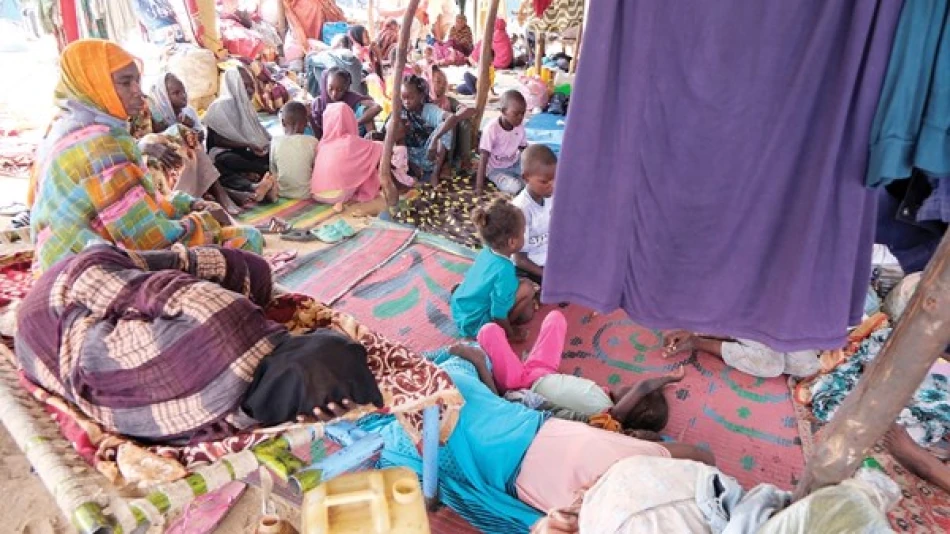
UAE Emphasizes Need to Restore Peace and Security in Sudan
Four-Nation Coalition Pushes Sudan Toward Civilian Rule as Regional Security Concerns Mount
A powerful quartet comprising the UAE, Egypt, Saudi Arabia, and the United States has unveiled an ambitious roadmap to end Sudan's devastating civil war, calling for a three-month humanitarian ceasefire followed by a nine-month transition to civilian governance. The joint initiative reflects growing alarm over what officials describe as the world's worst humanitarian crisis and its destabilizing effects across the strategically vital Red Sea region.
The Strategic Stakes Behind Sudan's Crisis
Sudan's ongoing conflict between the Sudanese Armed Forces and the Rapid Support Forces has created far more than a localized humanitarian disaster. The war threatens critical shipping lanes through the Red Sea, provides opportunities for extremist groups to exploit chaos, and sends ripple effects across North Africa's already fragile security landscape.
The quartet's involvement signals that Sudan's crisis has reached a tipping point where regional powers can no longer afford to remain passive observers. With over 25 million people requiring humanitarian assistance and millions displaced, the conflict's scale now rivals Syria's early civil war period in terms of human suffering and regional implications.
A Timeline for Peace: Three Months to Nine Months
Immediate Humanitarian Phase
The proposed three-month humanitarian truce represents more than a temporary pause in fighting. Foreign ministers from the four nations emphasized that this period must enable unrestricted humanitarian access across all of Sudan's territories, effectively testing both warring parties' commitment to civilian protection before advancing to permanent solutions.
The Nine-Month Civilian Transition
Perhaps most significantly, the coalition demands that any future Sudanese government emerge through a transparent, inclusive process explicitly not controlled by any warring faction. This represents a direct challenge to both the military leadership and paramilitary forces currently vying for power, essentially requiring them to cede control to civilian authorities.
Regional Power Dynamics at Play
The joint statement's pointed reference to "violent extremist groups affiliated with the Muslim Brotherhood" reveals the ideological dimensions underlying this diplomatic push. This language particularly reflects Gulf states' broader regional strategy of containing Islamist political movements they view as destabilizing forces.
The emphasis on ending external military support to warring parties also carries implicit warnings to countries like Russia and Iran, which have been accused of providing weapons and support to different Sudanese factions. The UAE itself has faced similar accusations, making this commitment particularly significant from Abu Dhabi's perspective.
Economic and Security Calculations
For investors and regional economies, Sudan's stabilization carries enormous implications. The country sits atop significant gold reserves and agricultural potential, while its location makes it crucial for Red Sea trade security. The current chaos has disrupted regional supply chains and created refugee burdens for neighboring countries.
The coalition's focus on Red Sea security reflects practical economic concerns. With global shipping already disrupted by various regional conflicts, a stable Sudan becomes essential for maintaining alternative trade routes and preventing further maritime security complications.
Diplomatic Architecture Taking Shape
The statement's endorsement of Saudi Arabia and the US-led "Jeddah Process," alongside Egypt's civilian political forums, suggests a coordinated diplomatic architecture designed to avoid the competing mediation efforts that have plagued other regional conflicts.
The scheduled September 2025 follow-up meeting indicates this quartet intends sustained engagement rather than one-off diplomatic theater. This timeline-driven approach mirrors successful peace processes in other contexts, though Sudan's complexity may test even well-coordinated international pressure.
The Civilian Government Challenge
The coalition's insistence on civilian-led governance faces the fundamental challenge that Sudan's military and paramilitary forces currently control territory and resources. Previous attempts at civilian transitions in Sudan have repeatedly failed when security forces reasserted control.
However, the international backing now arrayed behind civilian governance—including major regional powers and the United States—represents a level of external pressure not present in previous transition attempts. The success of this approach may depend on whether the quartet can maintain unified pressure and offer sufficient incentives to encourage military leaders to step aside.
The initiative's outcome will likely influence how regional powers approach similar conflicts across Africa and the Middle East, potentially establishing precedents for coordinated international intervention in civil wars with broader strategic implications.
Most Viewed News

 Layla Al Mansoori
Layla Al Mansoori






